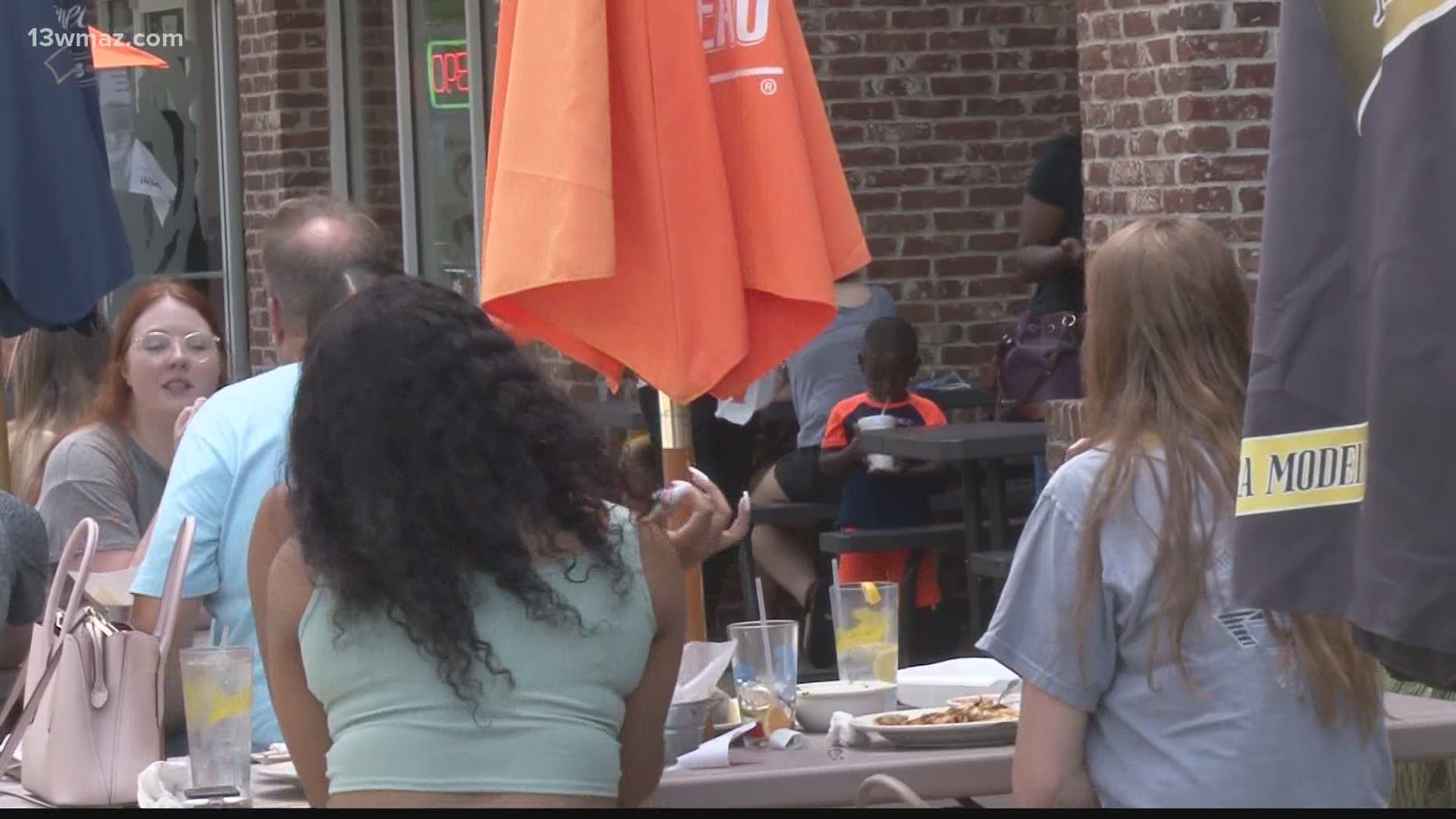MACON, Ga. — As positive coronavirus cases rise in young people, some have called them irresponsible for hanging out at bars, parties and large gatherings. Macon psychologist Dr. Amy Lee Flowers says older adults should be more understanding.
COVID-19 cases have spiked recently among ages 18-29. Some public health experts believe that lack of social distancing and following safety guidelines are the cause.
Hannah Grizzle, 22, is a graduate student at University of Georgia. She said still hangs out with friends.
“Once it all got kind of serious, I mean, I've been to like house parties, like, a couple that were 20 people or less, so more than what I guess we're supposed to be doing, but not very often, but I mean -- this probably sounds bad, but it hasn't really stopped me from going,” said Grizzle.
Research shows, for people ages 14-26, social environment and interactions with peers are important for brain development and mental health. Macon psychologist Dr. Amy Lee Flowers said the brain isn’t fully developed until the 20s.
“I think we need to cut the kids a little bit of slack here, because this is a time of, you know, there's different kinds of intelligence -- there's academic, there's mechanical, there's social, there's emotional, there's street smarts, there's common sense,” Flowers said, “And this is the time that kids really are focusing on social and emotional intelligence, and they're lonely.”
Dr. Flowers said older adults should be more understanding of why younger people take risks.
“They're missing the college experience, they're missing the football games, they're missing going to the clubs and they're missing going to get a pizza with their friend while they study,” said Flowers.
“They're missing all of that, and that's hard. That's part of what makes college fun and where you really grow. I think in the first year of college, you learn a lot more socially than academically.”
Chance Allen, Mercer University junior, hasn't attended a large event since March. He admits that he misses having a social life.
“I do miss that, because I think that's a huge part of college life in general, just the whole social aspect of it, even things as little as like clubs and sports and things like that,” said Allen.
Dr. Flowers said lack of peer contact can have long term effects on teens and young adults, but they should still adhere to safety guidelines in a social setting. Face-to-face social interaction is just part of teens' normal development.

